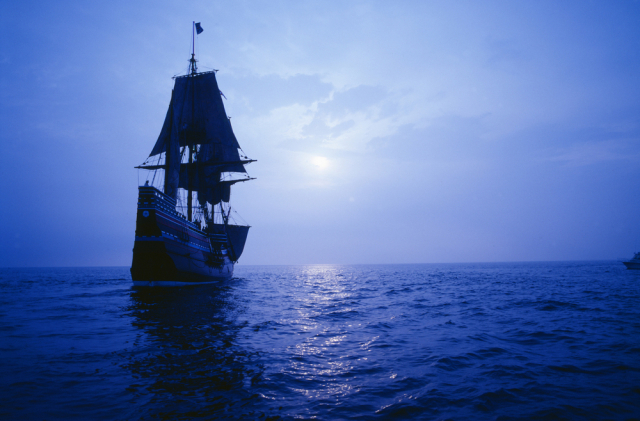The Mayflower voyage and the English settlement of North America
Early Modern North America

The Mayflower voyage and the English settlement of North America
The 1620 Mayflower voyage was the result of the desire of a religious Christian group, the Puritans, who wished to break away from the Church of England and create a new community away from Catholic-influenced Europe. Plans for the voyage were fraught with problems in the summer of 1620, and the aim to have two ships sail to build their new ‘Jerusalem’ had to be changed at short notice.
The voyage itself took two months and meant that once in America the winter had already set in. By the time the majority of the passengers were able to disembark from the ship and start to create a settlement it was spring 1621 and half of those who had originally set out (passengers and crew) had died from disease and sickness. Nonetheless, the crossing of the Mayflower signifies an important point in modern history and the creation of European settlements in the Americas.
In this podcast, Martyn Whittock explores the reasons for migration to the New World in 1620 and later, and the significance of those migrants, both at the time and their impact on the evolution of America today. Martyn Whittlock is the author of Mayflower Lives (Pegasus Books NY, 2019) and co-author of Trump And The Puritans (Biteback, 2020). You may also be interested in our complementary podcast on early British America.
1. An inauspicious beginning
2. The back-story of North Atlantic exploration
3. Going Dutch…or not!
4. The significance of Plymouth Colony in the North Atlantic migration
5. The significance of the Plymouth ‘Pilgrims’
In order to access the full content of the podcasts please Login or Join the HA.

